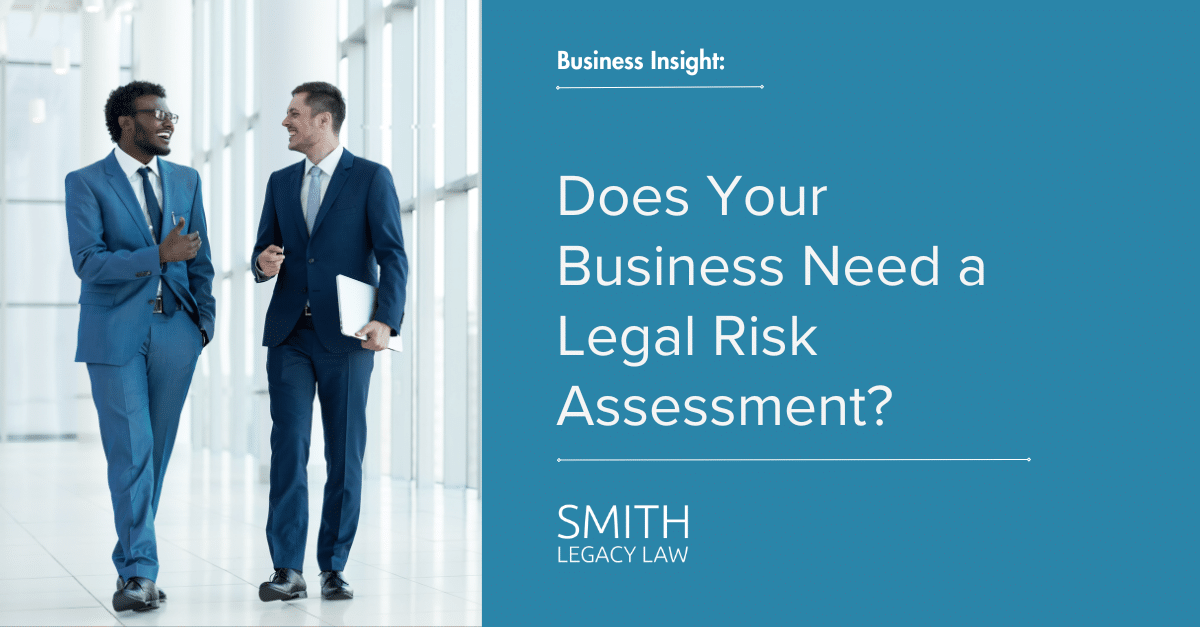If you own a business, you are subject to a host of federal, state, and local laws as well as to the terms of any agreements you made with another party (verbal or written). Any of these can result in legal liability if you fail to comply. While you may not prevent every possible thing that can go wrong, obtaining a legal risk assessment can significantly reduce your liability exposure.
Understanding Legal Risk Assessments
A legal risk assessment is a process wherein an attorney conducts a thorough review of your operations and documents to identify potential problems and recommend ways to mitigate those risks. It also may identify opportunities for cost savings and/or additional revenue.
This review process is not a one-time event. A legal risk assessment should be repeated regularly since laws change as do your operations, business needs and goals.
What Are the Benefits of a Legal Risk Assessment?
The advantages of a legal risk assessment lie mostly in providing a planning tool for businesses. By identifying threats and opportunities, you can take appropriate preventive measures and implement strategies that will help your business be more successful. An assessment can help you:
- Lower costs from legal fees, fines, and penalties
- Improve protection of your assets
- Increase efficiency and transparency in your operations
- Identify tax savings
- Increase valuation of the business
- Reduce owners’ risks of personal liability for corporate obligations
What Is Done During a Legal Risk Assessment?
Your attorney will begin by talking with all owners and key employees to understand the business. This includes discussing its finances, priorities, goals, operations, strengths/weaknesses, known legal issues, pending business transactions, and other pertinent information. Your attorney will also seek information regarding your industry, competitors, and business/regulatory environment.
Next, all company documents and agreements will be reviewed, including shareholder, partnership and operating agreements; employment/independent contractor agreements; leases; vendor, supplier and customer contracts; website terms and conditions and privacy policies; and financing agreements. Your attorney will also want to see your insurance policies, financial and tax records, government filings, and advertising materials. Intellectual property-related documents will also be evaluated, including registration and licensing agreements.
Typically, your attorney will prepare a written report outlining risk areas and opportunities and make recommendations for next steps. You will then meet to discuss the report and identify priorities.
Getting Started with Legal Risk Assessment
The end result of this process should be a healthier business that can maximize its current circumstances and effectively plan for the future. Every business needs a periodic legal risk assessment. If you are ready for one for your business, contact our firm. We provide clients with assessments as part of our Fractional General Counsel services as well as on a standalone basis to help your business succeed.
